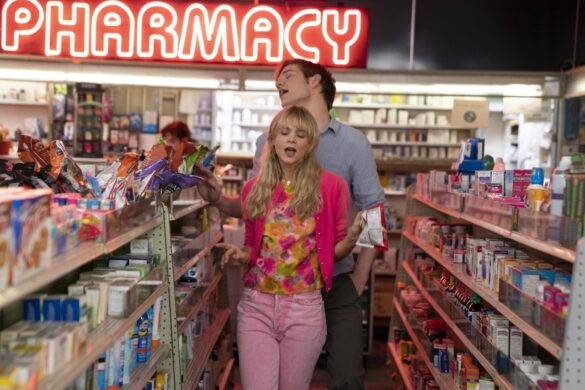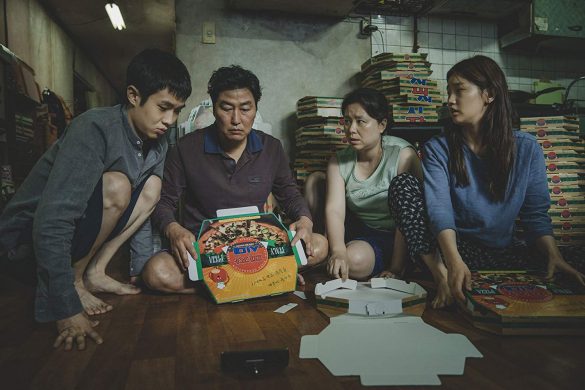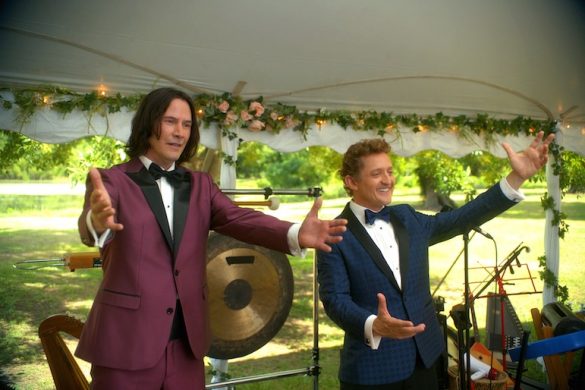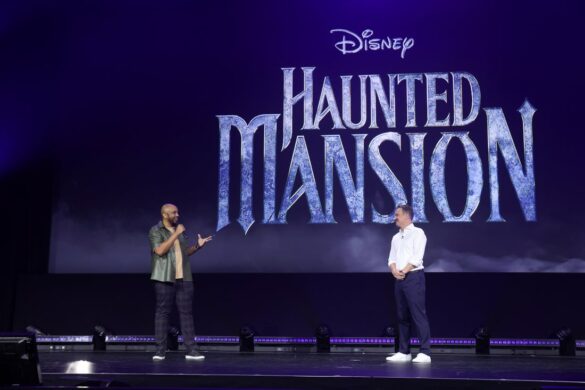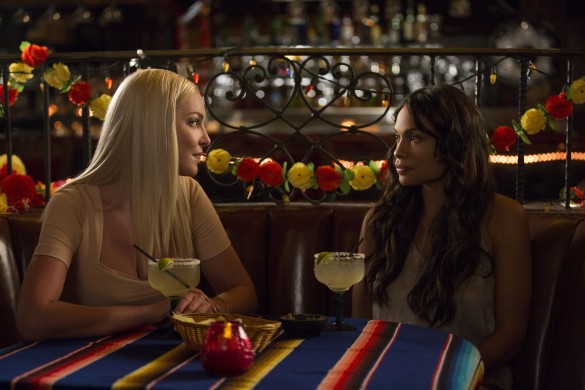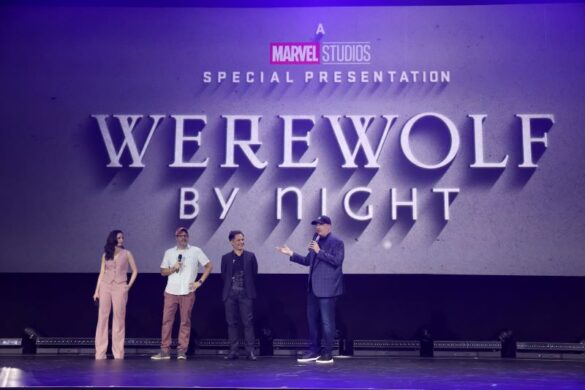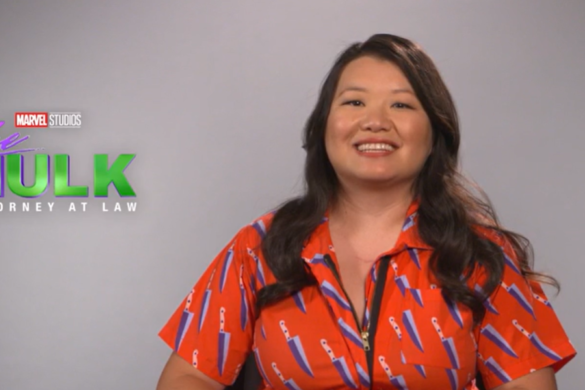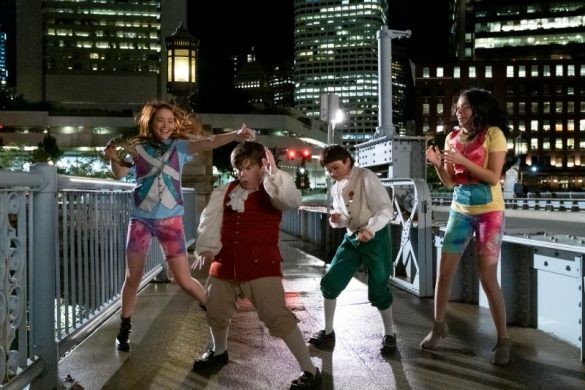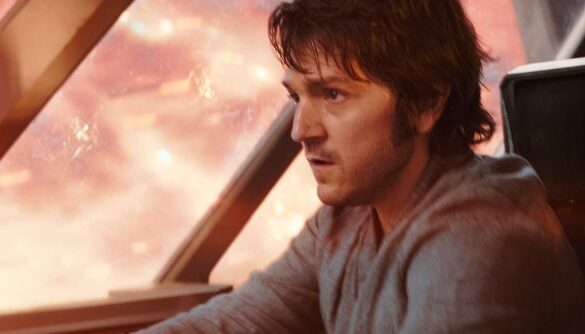Black Widow, starring Scarlett Johansson, maybe the 24th film in the Marvel Cinematic Universe, but it is one that is long overdue for the fan-favorite assassin turn Avenger. Since her debut in 2010’s “Iron Man 2,” Johansson has played supporting roles to her male counterparts or ensemble films. However, the film is a chance for her to show off her heroics and resolve past severe trauma.
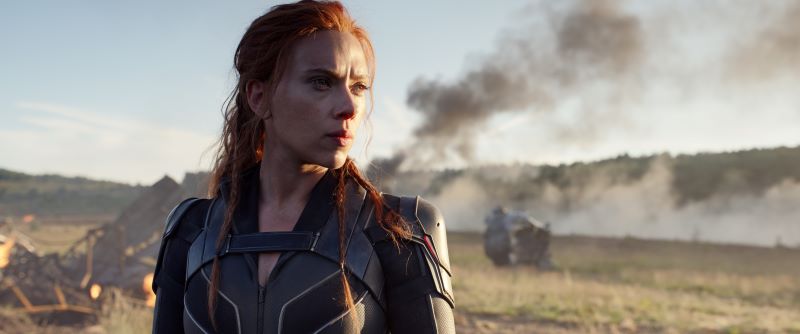
Set shortly after the events of “Captain America: Civil War,” “Black Widow” centers on Natasha as a fugitive on the run for violating the Sokovia Accords. But she finds herself resolving some unfinished business when her past as a former spy and assassin comes back to haunt her. With nowhere else left to go, Natasha turns to her estranged family for help to bring down the system that turned her into a lethal weapon and save countless others from it.
ThatsItLA had a chance to join their fellow journalists and bloggers for the Black Widow virtual press conference where the Johansson, along with co-stars Florence Pugh, Rachel Weisz, and David Harbour, as well as director Cate Shorthand and Marvel Studios president Kevin Feige. There they talked about the upcoming film, its themes, and bringing a standalone film to a character that should have gotten it sooner.
“From the beginning, when we spoke about the film, we knew that it had to speak to two things, which was Natasha as an individual, and then what had happened to her and who she was at the beginning of the film, which was she was completely alone,” said Shorthand. She wanted the film to be as fun and thrilling as a fairground ride, but also raw and emotional. “It was always like putting her at the center of it. But making sure that we didn’t let the trauma of her past drag it down, rather that we came up to answer it. And we often did that with humor.”
Fans of the Marvel Cinematic Universe have been waiting over a decade to see the female Avenger get a standalone film. Marvel Studios president Kevin Feige attributes much of that to Johansson’s strong performances. “Scarlett Johansson is an amazing performer and, and with each and every appearance, you learn more, you saw more, and you wanted to know more,” he said. “And the fact that we finally have an entire feature dedicated to that was very exciting for all of us. And now that is coming out, and people can see it is even more exciting for all of us.”
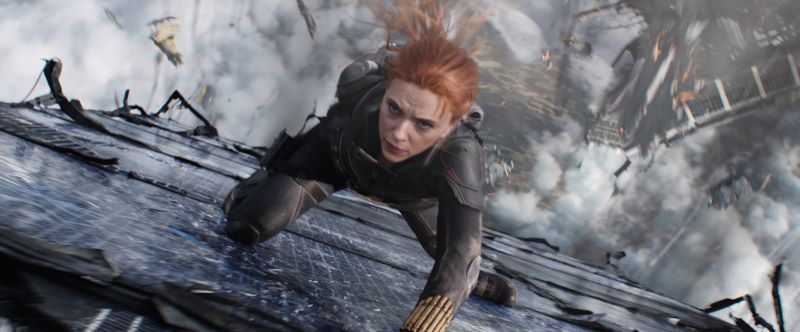
And because this is Black Widow’s first standalone feature, audiences and fans will get to see what she is capable of when she is on her own and outside of the shadow of the Avengers. “She’s always been a part of something either by circumstance and being a victim of the Red Room. And then, you know, you know, obviously joining with joining shield and then and then subsequently, Avengers, she’s always been a part of something that was part of a greater whole. Then suddenly she finds herself sort of floating in this weird in-between space, and she’s off her game, and she realizes that she’s got all this possibility in front of her, and it’s really suffocating,” Johansson said.
But because Natasha seems like she knows everything or is in control, “Black Widow” is a chance to see her in a place where everything is taken away from her. “She’s blindsided by this person who comes from her past who is just on fire, a liability and got this crazy energy that is dangerous and is full of life, and isn’t needy but needs time,” Johansson adds about Natasha’s relationship with her sister. “And, you know, it’s just she’s so thrown off her game in this, it’s great to see her like that we never get to see her like that. It was a fun place to start from; she’s just full of doubt. And, you know, leaves a lot of openings for stuff to kind of creep in.”
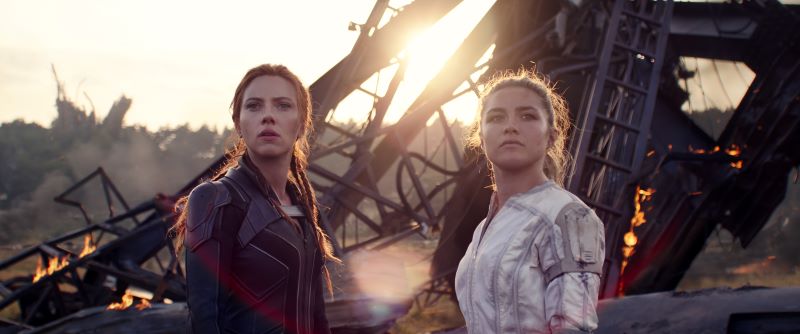
That sisterly relationship between Natasha and Yelena is central to the film’s themes about the strength of family, especially one as unconventional as a spy family. “Despite her skill set, she is that wonderfully annoying younger sister that says all the right things and all the wrong times,” Pugh said about Yelena. “And so that wasn’t hard at all for me to get into that. I think something that I really appreciated was Cate was so welcoming of me to figure out how she thinks and how she moves and what she wears.”
“Cate really encouraged me to find the oddities in her and lean on that so much that in the end tag scene, you can see that she’s flourishing. She’s becoming her own being,” Pugh added. “I think also being welcomed into it with Scarlet equally being as, as giving as she was, I really found it such a wonderful and creative space. And just to have fun, I think that was the overall thing. You know, these two sisters have been so much fun together and amongst all of the pain that they’ve shared.”
And it is quite a painful reunion for the two sisters who had been estranged for quite some time with Scarlet being an Avenger and Yelena being a Red Room spy. Without getting into spoilers, the two find themselves working together to defeat a common enemy, but it will take more than just a few punches to gain each other’s trust. “It was an ice breaker. I am very lucky because Florence is a very athletic person. She has a background in dance, and so she nailed all the choreography is right there and like totally game to go at it.” Johansson said. “It’s such an emotional fight. It’s all driven by emotion. You know, it’s there’s no real end goal there. It’s just two people expressing their frustration and also the power struggle and then their genuine surprise and also affection for one another all.”
Johansson said the scene was a unique way to bond with another actor, and yet it felt very safe.
For Weisz, who plays Melina, she was drawn to the role because she loves stories about women, films that are directed by women. “It was wonderful to tell a story with that three, three complicated, strong women. Just on the page, I just thought she was a really unusual character, and I loved her relationship with her pigs,” she said. One of her favorite moments in the film was her shooting that family scene where the family gets back together in Russia after 20 years. For her, it was a “delightful, delightful thing” that was upstaged by the pigs. And the emotional and intimate scene was also upstaged by Harbour’s eccentricity.
But Weisz also found Melina’s lack of sense of humor very appealing. “What I liked about Molina was that she has absolutely no sense of humor, like none, you know, possibly makes her quite funny sometimes,” she said.
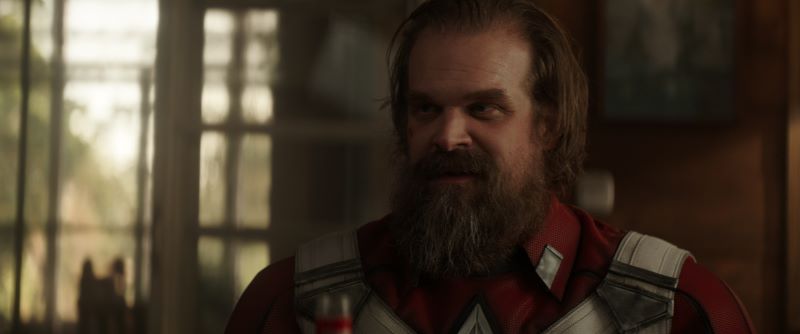
Much of “Black Widow’s” comedy comes from Alexei Shostakov, the KGB agent and surrogate father to Natasha and Yelena, and doting lover to Melina. Although, there is nothing real about this family, at least from a conventional sense. “The funny thing about him is that it’s sort of built out of the same word, it hatches from the same egg, that pathos, and the humor of this character,” Harbour said. “He is filled with grief and remorse about the choices that he’s made, like, emotionally spiritually, nutritionally. The comedy itself comes out of the ego that is built to defend against the feelings of that remorse. So, in other words, he has to be so bombastic because he can’t stop and feel these things.”
“You know, the failures they made, he has to build around him a world of like a confabulatory psychotic reality where he is the hero, the hero, and that’s inherently silly. I mean, that’s inherently funny,” Harbour continued. “Also, the family dynamics themselves are just so fun because what I found developing too was there’s almost a traditional shot, which I think is the perfect image of us around the table in these very specific positions. I remember talking about that day that we shot it, but we’re all in Super suits, right. But you have this almost Norman Rockwell thing of dad coming in last to sit at the end of the day. While eldest child sits here and mother and babies sit over here, and I found that all sort of falling into these traditional cliche roles, and then like, riffing off of that, and that was, that was like, really fun and satisfying as well.”
Introducing new characters to the Marvel Cinematic Universe only furthers its mythology for fans, but it is also a memorable experience for those making the films. “I’m partial because I love our Marvel Family, and I know how special it is, and how special experiences are making these films,” Johansson said. “And I’m just excited for other actors to come in. I mean, I hope that they feel some will feel similarly. It’s wonderful to see people come into something with excitement and wide eyed and get to experience the incredible world of Marvel and the making these huge productions.”
And this was a different kind of Marvel flavor considering we know the fate of Natasha Romanoff, but also not something wholly unique considering we’ve seen prequels set in the MCU. However, Feige says just because this is a specific prequel for a fan-favorite character doesn’t mean they’ve closed the door on making more of these films. “Certainly this film in this story is a particular case for Natasha,” he said about “Black Widow” being used as a prequel template for other MCU characters. “But the notion of exploring the past, present and future of the MCU is certainly is certainly in the cards for all of our for all of our characters. This particular story with this particular cast is very personal, very specific to Natasha.”
While Natasha’s fate is sealed within the great pantheon of the MCU, Johansson hopes that fans will remember her character for her integrity and that “she’s not she’s not afraid to admit when she’s wrong.” “She’s kind of endearing that way. And I think, you know, she’s curious about herself and curious about other people. And, you know, I think it makes her stand out,” Johnson said. “But I’m partial. And then of course, the pose, the pose. Oh, no one will forget that.”
And knowing how it will all end for Natasha affected Johansson’s approach to the character. Because while there were large unresolved issues of her past that Natasha needed to address, she seemed very content with the self-sacrificing decision she made in “Avengers: Endgame.” “We wanted to make sure that that was a choice that she made actively, that it felt like she had resolve then,” she said. “Knowing that we then had to work backwards so that she could get to a place where that was possible. And we knew that in this film, she had to evolve into a place where she was moving forward in her life and had resolved the trauma from her past that she felt that that was something that she felt like a different person moving forward.”
“Black Widow” opens in theaters and launches on Disney+’s Premiere Access on July 9, 2021.
Pre-order Black Widow tickets now!


